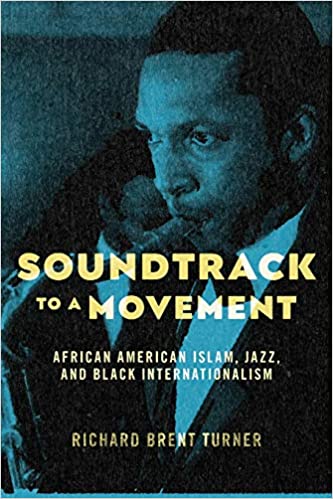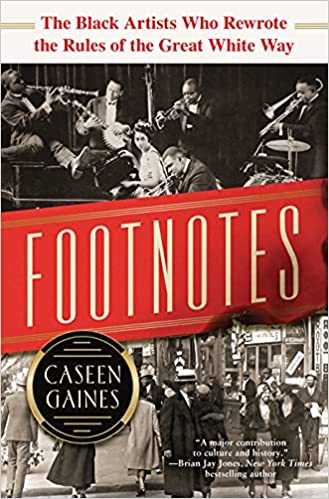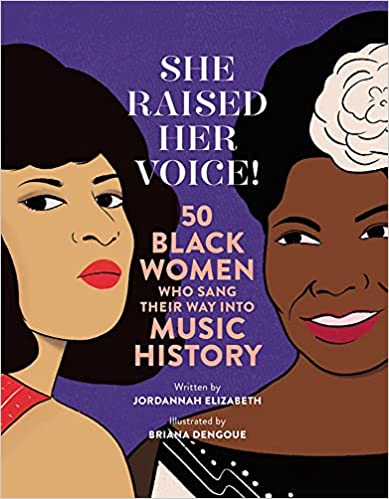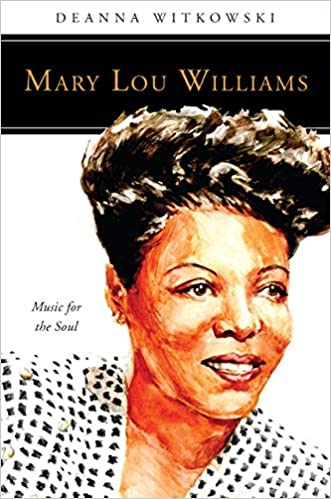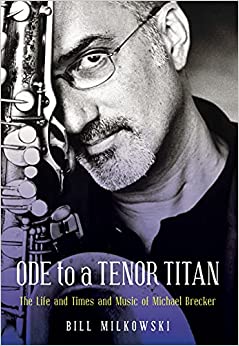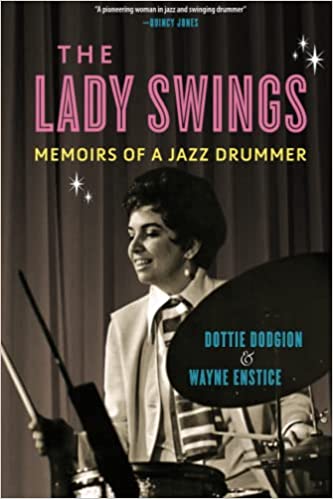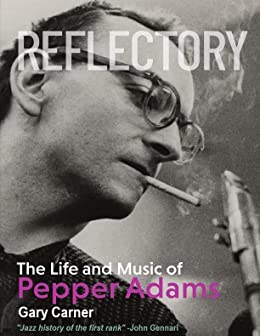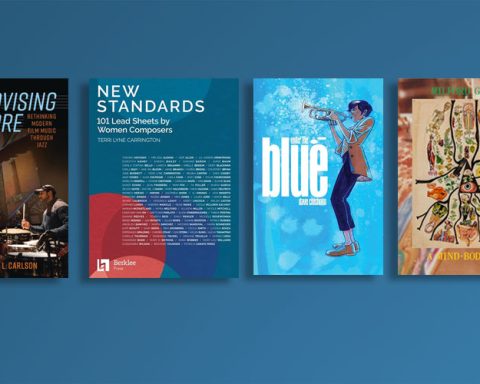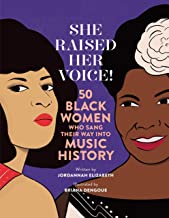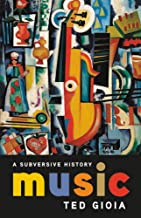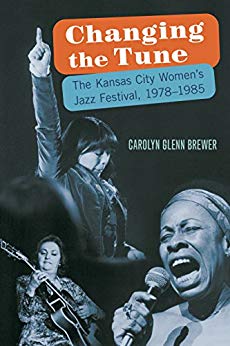The first nominees of the 2022 JJA Jazz Awards have been announced: Contenders for Jazz Book of the Year in separate categories for Biography and Autobiography, and History, Criticism & Culture, put forth in advance of the larger slate of Awards music and journalism nominees, so the JJA’s member-voters will have time to read the volumes before voting for finalists, which will begin April 15.
In addition, an estimable slate of Honorable Mentions has been annotated by their advocates on the JJA Book Committee.
“Once again, the JJA Book Committee has been impressed with the quality and diversity of jazz-related volumes published in 2021,” Bob Blumenthal, chair of that Committee, writes. “In an attempt to address both the number of worthy titles and their variety of approaches, we have decided to nominate authors in two categories that reflect what was basically a 50/50 split in the books we reviewed.
“We also want to acknowledge other titles that received serious consideration with the following Honorable Mentions. The comments are provided by the five members of the committee: myself, Leslie Lynnton Fuller, Todd Jenkins, Fiona Ross and Bradley Stone.”
NOMINEES, BIOGRAPHY/AUTOBIOGRAPHY
- Universal Tonality: The Life of William Parker (Duke University Press), by Cisco Bradley
- Reflectory: The Life and Music of Pepper Adams (Lulu Press), by Gary Carner
- The Lady Swings: Memoirs of a Jazz Drummer (University of Illinois Press), by Dottie Dodgion and Wayne Enstice
- Ode to a Tenor Titan: The Life and Times and Music of Michael Brecker (Backbeat Books), by Bill Milkowski
- Mary Lou Williams: Music for the Soul (Liturgical Press), by Deanna Witkowski
NOMINEES, HISTORY, CRITICISM & CULTURE
- She Raised Her Voice! 50 Black Women Who Sang Their Way into Music History (RP Kids), by Jordannah Elizabeth, text; Briana Dengoue, illustrations
- Footnotes: The Black Artists Who Rewrote the Rules of the Great White Way (Sourcebooks), by Caseen Gaines
- Soundtrack to a Movement: African-American Islam, Jazz and Black Internationalism (NYU Press), by Richard Brent Turner
HONORABLE MENTIONS, BIOGRAPHY/AUTOBIOGRAPHY
Billie Holiday: The Graphic Novel (Fantoons), by Ebony Gilbert & David Calcano. The path of one of the world’s most influential musicians is explored in a 144-page graphic novel. The authors portray Holiday as a majestic and luminous figure despite the physical violence, heartbreak and racism she endured, an artist of unshakeable confidence whether singing “Strange Fruit” or holding court among the likes of Count Basie, Artie Shaw and Lester Young./LLF
Bessie Smith: A Poet’s Biography (Vintage), by Jackie Kay. A beautiful combination of poetry and prose explores the realities of Bessie Smith’s life. Kay’s personal relationship with her subject’s music, interlinked with the reality of the author’s life as a black female artist, drives home the contemporary relevance of Bessie Smith’s voice./FR
Times Remembered: The Final Years of the Bill Evans Trio (University of North Texas Press), by Joe LaBarbara, Charles Levin. An insightful look at the last few years of the Bill Evans Trio that included Marc Johnson on bass and LaBarbera on drums. While not a biography on Bill Evans, per se, the pianist is front and center in the narrative, particularly during the events at the end of his life. LaBarbera leaves readers to wonder what might have been had Evans sought medical attention earlier./BS
Texas Jazz Singer: Louise Tobin in the Golden Age of Jazz and Beyond (Texas A&M University Press), by Kevin Edward Mooney. Mooney allows the 102-year-old vocalist to have her say about performing with Benny Goodman, “discovering” Frank Sinatra and more personal matters such as meeting her husband at Newport in 1962. An enjoyable account by one who was there./LLF
A Chaos with Some Kind of Order (Ear Mind Heart Media), by Margriet Naber. The life of Danish saxophonist John Tchicai, explored through the personal lens of his fourth wife. By combining her personal experience with Tchcai’s own portfolio of manuscripts, diaries and personal notes, Naber brings to life his constant search for freedom./FR
Double Helix: A Memoir of Addiction, Recovery, and Jazz in Two Voices (ReedsWrite Books), by Ed and Diane Reed. Jazz doesn’t dominate until the book’s fifth and final section, but the lifelong struggle of vocalist Ed Reed with heroin addiction and the parallel story of his sometime enabler and ultimately super-supportive life partner Diane are unflinchingly honest and instructive. The braiding of the narrative in both Ed’s and Diane’s voice makes for a moving journey./BB
Eberhard Weber: A German Jazz Story (Equinox), by Eberhard Weber, translated by Heidi Kir. A well-written, candid account of the career of the great German bassist and composer. Fans of Weber’s extensive discography as both leader and sideman on ECM will be interested in exploring his earlier work in mainstream jazz and jazz-rock fusion./BS
HONORABLE MENTIONS, HISTORY, CRITICISM AND CULTURE
Welcome to Harmonyville (Yol Publications), by Jon Damian. Guitarist and educator Damian presents a fun, informative and kid-friendly walk through the basic concepts of harmony. While strolling through town and interacting with other notes, Gino and Dee Dominante stay on a path to con-chord-ance. A well done, creative, and most of all helpful guide to understanding harmonic structure, with a foreword by former Damian student Bill Frisell./TJ
Ugly Beauty: Jazz in the 21st Century (zerO Books), by Phil Freeman. A longtime chronicler of the music’s cutting edge reports on what he heard before the pandemic shut live music down and how he responded. Freeman bases his essays on performances he attended and follow-up conversations with the artists, and has found an effective five-part structure to enclose the ever-expanding jazz tent. One critic’s sense of what the four-letter j-word means at the moment. /BB
Talk! Conversation in All Keys: Volume 3, American Music (7Arts Press), by William M. King. After earlier volumes focused on Canadian musicians and the music business, veteran journalist King collects several decades of conversations with US artists. A stunning range of subjects from Ahmad Jamal to Wynton Marsalis (presented alphabetically by first names), King captures both his subjects’ and his own enthusiasm for their music in an engaging manner./BB
Chasing the Blues: A Traveler’s Guide to America’s Music (Backbeat Books), by Josephine Matyas and Craig Jones. Two Canadian academics hit the roads of the Mississippi delta and learn the rich and often sordid stories behind one of America’s greatest art forms. With a sweeping historical perspective on the cultural, economic and natural challenges that the music encountered, plus hundreds of sites specific to blues history mapped in just enough detail to draw readers in, this essential guide will make hardcore fans want to hit the road themselves./TJ
The Musician’s Career Guide: Turning Your Talent into Sustained Success (Allworth), by Ulysses Owens Jr., Arlen Gargagliano, Alexander Smalls. Drummer Owens and company provides a much needed resource. The book targets young musicians considering performance as a career choice who need to have a stronger background on the “business aspects of business.” Its coverage of diverse topics – touring, recording deals, publicity, marketing – make it useful to everyone attached to the jazz world./BS
Griot: This is Important! (PeltJazz Publishing), by Jeremy Pelt. One of the most accomplished and admired trumpeters today has conducted interviews with black artists who tell their stories as part of the pantheon who continue the African oral custom and tradition associated with the griot. A second volume is promised./BS

